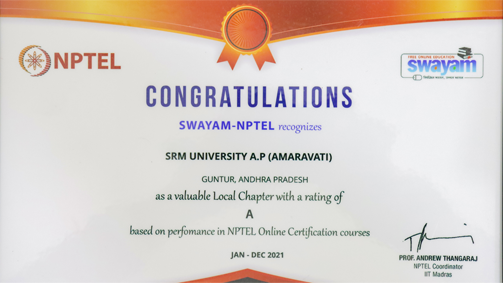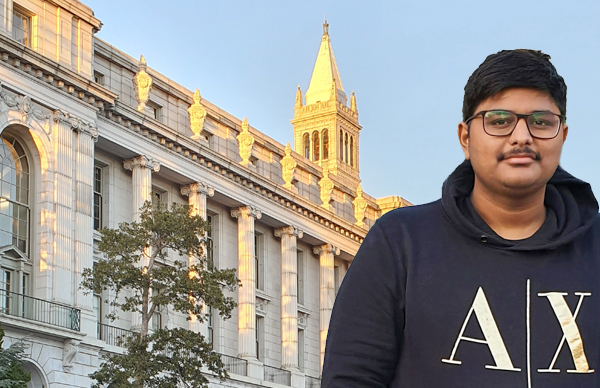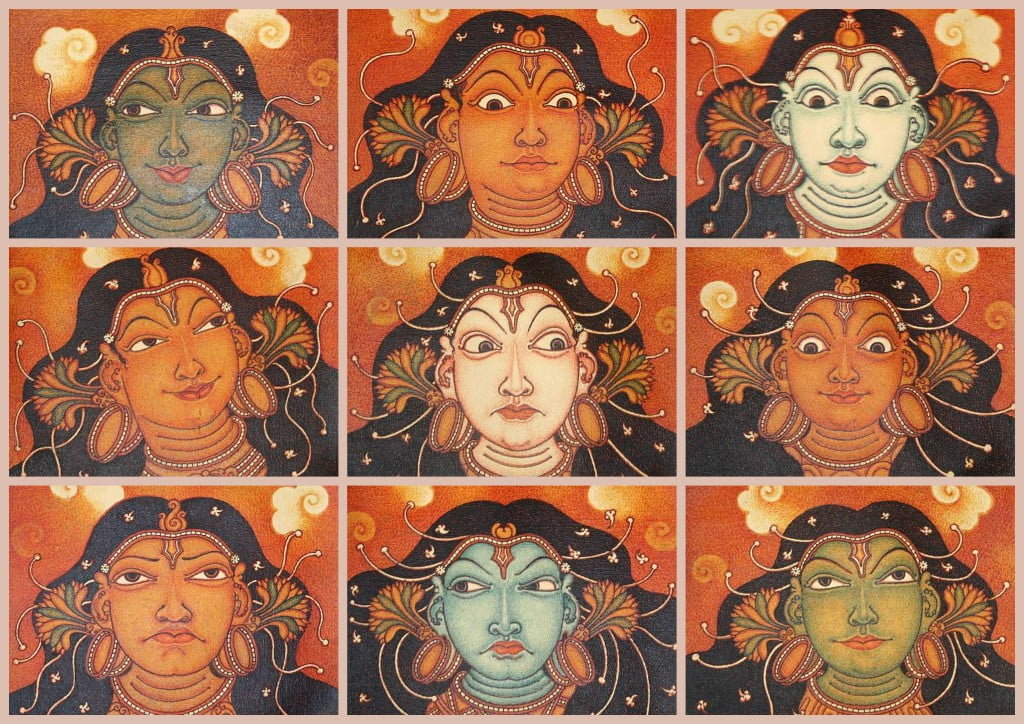- Security Framework using Blockchain Technology February 24, 2022
The Department of Computer Science Engineering is proud to announce that Dr Sriramulu Bojjagani has published a paper titled “Blockchain-Based Security Framework for Sharing Digital Images using Reversible Data Hiding and Encryption” in the journal Multimedia Tools and Applications (MTAP) having an impact factor of 2.757.
The paper is published in collaboration with D.R Denslin Brabin from the Department of Computer Science and Engineering, DMI College of Engineering, Tamil Nadu and Christo Ananth from the Department of Electronics and Communication Engineering, St. Mother Theresa Engineering College, Tamil Nadu.
Abstract of the Research
Security is an important issue in current and next-generation networks. Blockchain will be an appropriate technology for securely sharing information in next-generation networks. Digital images are the prime medium attacked by cyber attackers. In this paper, a blockchain-based security framework is proposed for sharing digital images in a multi-user environment. The proposed framework uses reversible data hiding and encryption as component techniques. A novel high-capacity reversible data hiding scheme is also proposed to protect digital images. Reversible data hiding in combination with encryption protects the confidentiality, integrity and authentication of digital images. In the proposed technique, the digital image is compressed first to create room for data hiding, then the user signature is embedded; afterwards, the whole image is encrypted. For compression, JPEG lossy compression is used to create high capacity. For encryption, any symmetric block cipher or stream cipher can be used. Experimental results show that the proposed blockchain-based framework provides high security and the proposed reversible data hiding scheme provides high capacity and image quality.

Fig 1: The process of encoding during reversible data hiding
Dr Sriramulu Bojjagani also intends to work on the development of block-chain based solutions to intelligent transport systems and on addressing the challenges of security issues involved in connected and autonomous vehicles.
- MBA at SRM AP – Career Prospects and Future Opportunities February 24, 2022
 Being the world’s most popular management degree, millions of ambitious students are enrolling in MBA programmes both inside and outside the country. An MBA degree is open to graduates in any discipline, supplementing their career prospects. A wide array of MBA courses introduces students to different facets of business and imparts them the necessary skills to hold management and leadership positions in any field of work. Having countless colleges to choose from, serious thought must be given to choosing the right university for an MBA programme. SRM University- AP is organising a webinar on MBA at SRM AP – Career Prospects and Future Opportunities on February 25, 2022, at 4.00 PM to know more about the career paths an MBA graduate of our university can embark on.
Being the world’s most popular management degree, millions of ambitious students are enrolling in MBA programmes both inside and outside the country. An MBA degree is open to graduates in any discipline, supplementing their career prospects. A wide array of MBA courses introduces students to different facets of business and imparts them the necessary skills to hold management and leadership positions in any field of work. Having countless colleges to choose from, serious thought must be given to choosing the right university for an MBA programme. SRM University- AP is organising a webinar on MBA at SRM AP – Career Prospects and Future Opportunities on February 25, 2022, at 4.00 PM to know more about the career paths an MBA graduate of our university can embark on.The School of Entrepreneurship and Management Studies at SRM University-AP aims to nurture entrepreneurs and business professionals who can create a difference in global management practices. A comprehensive curriculum designed after understanding the best management practices and industry-relevant professional skills enables students to keep abreast of the latest developments in the realm of business. Collaborating with universities of international repute will also give them an opportunity to take up high-impact online courses and familiarise themselves with innovative study approaches.
Join the webinar on MBA at SRM AP – Career Prospects and Future Opportunities to explore the exciting opportunities that await you.
Continue reading → - SRMAP receives SWAYAM-NPTEL ‘A’ rating February 23, 2022
 SRM University-AP is happy to announce that it was recognised by NPTEL SWAYAM as a valuable local chapter with an ‘A’ rating for the year Jan-Dec 2021. The rating is based on the performance of students who took the examinations for various SWAYAM courses.
SRM University-AP is happy to announce that it was recognised by NPTEL SWAYAM as a valuable local chapter with an ‘A’ rating for the year Jan-Dec 2021. The rating is based on the performance of students who took the examinations for various SWAYAM courses.SWAYAM has awarded a plaque to SRM University-AP and a certificate of appreciation to Dr Satya Pramod Jammy for his role as the university local Coordinator. It is a great achievement for the young university.
The philosophy behind this mode of education is to facilitate the curiosity of students who have an interest in the courses that transcend the conventional curriculum and give them a unique edge over their peers. SRM University-AP encourages students to study these from SWAYAM and other MOOCs available. Their performance in the examinations conducted by SWAYAM will earn them grades and credits. This was made available to the students for the first time in January 2021 which opened a plethora of opportunities to the students, and they have enjoyed this new learning possibility.
In the year 2021, a total of 470 students registered for various courses. The pass percentage is a whopping 90%, there are 17 students in the top 5%, 4 students in the top 2% and one student in the top 1% of their respective courses. 69 % (321) of the students are in Elite and higher categories. 5% students received Elite+gold award, 30% receiving Elite+silver and 35% receiving Elite certificates.
Dr Satya Pramod Jammy is pleased with all the students for their active participation and their brilliant performance. Obtaining an ‘A’ grade in the first year of implementation stands as a testament to the academic excellence of SRM University-AP. Dr Jammy is also thankful to all the department level coordinators, Dr Tapas, Dr Sreenivasulu, Dr Rajiv, Prof. Jayaseelan, Dr Malavika, Dr Ramanjaneya Reddy, and Dr Mong for encouraging the students and actively participating in the discussions. Mr V. Srinivasarao (Asst. Librarian) was instrumental in setting up SWAYAM in a short period.
Dr Jammy expressed his gratefulness to the Vice-Chancellor, Prof V. S. Rao, Deputy Dean Academic affairs Dr B. Siva Kumar and the entire University management for their support in making this a possible endeavour and its glorifying success.
- Semester Abroad Journey of Yuvraj Tankala at UC Berkeley February 23, 2022
 Getting the chance to study abroad is a ticket to acquiring skills that are highly sought after and will give a special and unique boost to your profile. SRM University-AP provides students with opportunities and training to join a course from a number of renowned foreign Universities to give them that unique edge that top recruiters look for.
Getting the chance to study abroad is a ticket to acquiring skills that are highly sought after and will give a special and unique boost to your profile. SRM University-AP provides students with opportunities and training to join a course from a number of renowned foreign Universities to give them that unique edge that top recruiters look for.In a long list of achievers, Yuvraj Tankala has made it into the University of California, Berkeley through our Semester Abroad Programme. Yuvaraj shared his elation with us,
“It is the spring season here; I’ll be spending solid 6 months (a semester) here at UCB to learn and explore. UC Berkeley is a one-of-a-kind university. From its history to its recent innovations in the research community, UCB has been a major player in various fields. Getting selected and sitting and writing this in the heart of the campus at UCB is really a moment to cherish. It is surely a dream come true for an ambitious person like me. Waiting for every new day to learn new things and connect with more people over here.
The selection process was smooth, SRMAP and UCB had their own prerequisites to tick off so that the whole process would be smooth. I have gone through a series of interviews, and I am tested on my entrepreneurship skills and technical skills and having a balanced academic score.
Using the teachings of here, and my skills, which I’m sure to enhance; I’m planning to use them towards my entrepreneurial mindset. These would help me satisfy the requirements of launching a potential start-up.
All these achievements would not be possible without SRM-AP’s support. The support was through constant motivation, mentoring. I would like to thank Ragunathan sir, Sonam ma’am, Ashu Abdul sir, Nagaswetha ma’am for extending their full support during the process.”
Your overseas education journey story could be next. Join SRM University-AP to receive unique educational training and career guidance through our international collaborations.
- Juxtaposing Cross-Cultural Notions of Beauty February 23, 2022
 The School of Liberal Arts and Social Sciences is glad to announce that Dr Saurabh Todariya has published his paper titled “Aesthetic Delight and Beauty: A Comparison of Kant’s Aesthetics and Abhinavagupta’s Theory of Rasa” in the Journal of Dharma Studies published by Springer Nature. It is published in collaboration with Consciousness Studies Program, National Institute of Advanced Studies (IISc Campus), Bangalore.
The School of Liberal Arts and Social Sciences is glad to announce that Dr Saurabh Todariya has published his paper titled “Aesthetic Delight and Beauty: A Comparison of Kant’s Aesthetics and Abhinavagupta’s Theory of Rasa” in the Journal of Dharma Studies published by Springer Nature. It is published in collaboration with Consciousness Studies Program, National Institute of Advanced Studies (IISc Campus), Bangalore.Anything that is pleasurable to perceive is defined as beautiful. However, the notion of beauty takes different interpretations with respect to the lens it is viewed through. It is either rooted in one’s personal feelings or by virtue of something universal residing in the object. Through his paper, Dr Todariya seeks to explore this question by comparing the Philosophy of German Philosopher, Kant and the great Indian Philosopher of the 9th Century, Abhinavagupta. He proposes that appreciation of beauty is only possible when the personal and egoistic involvement is suspended with respect to the beautiful object.
The research is significant in the domain of cross-cultural philosophy and looks into aesthetics from a philosophical point of view, relatively an underexplored area in Indian Academia. Dr Todariya also aims to work on comparative aesthetics, especially on the notion of Hermeneutics and Art in Indian and Western Aesthetics in the future.
Abstract of the Research
The study aims to address the existing research gap through a thematic comparison between the aesthetics of Kant and Abhinavagupta. This paper explores Kant’s notion of aesthetic judgment based on disinterestedness with Abhinavagupta’s analysis of sādhāraṇīkaraṇa. We argue that the notions of “disinterested judgment” in Kant and sādhāraṇīkaraṇa in Abhinavagupta point towards the impersonal nature of aesthetic delight which makes the universality of aesthetic experience possible. Hence, aesthetics in both Kant and Abhinavagupta are not the personal and subjective experience, but a kind of universality based on the ability to experience impersonal joy. However, the notion of aesthetic delight in Kant is confined to the agreeable mental states only, while in Abhinavgupta the notion of rasa includes both positive as well as the negative mental states like fear, disgust, etc. In this regard, the paper will also analyse the affinity between the notion of sensus communius in Kant and sahṛdaya in Abhinavagupta which highlights the importance of aesthetic community and the impersonal nature of aesthetic delight.

